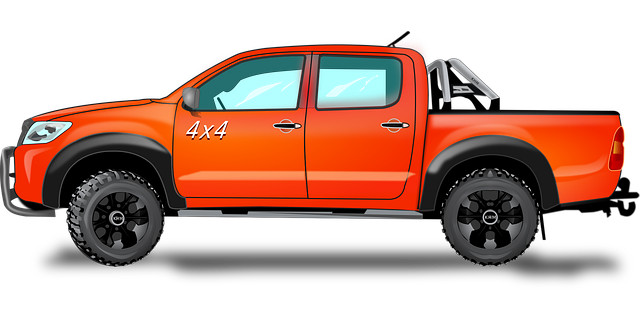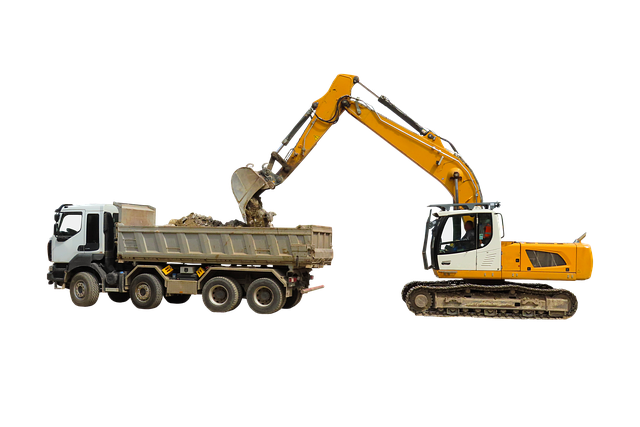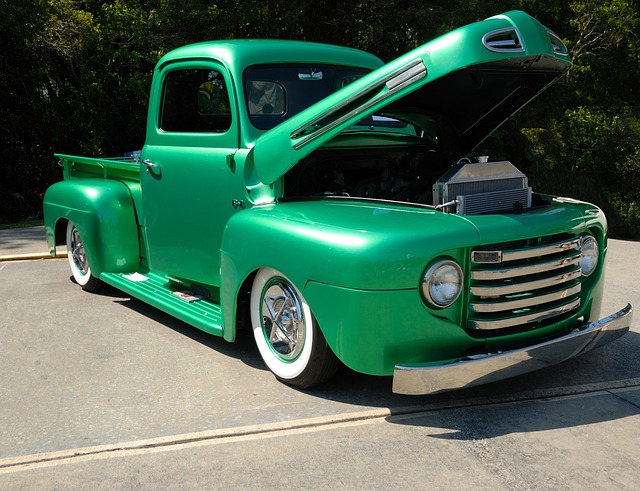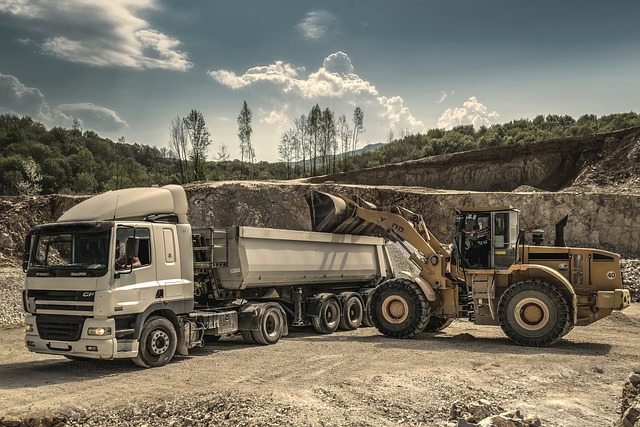The trucking industry is undergoing a significant transformation with the advent of advanced eco-friendly batteries such as Naion and sodium-sulfur technologies, which are addressing the range limitations and performance issues that have historically constrained electric trucks. These cutting-edge batteries offer higher energy densities, faster charging rates, and longer operational lifespans, enabling electric trucks to perform on a par with their diesel counterparts. Additionally, the adoption of flow batteries in truck fleets is set to revolutionize the sector by providing scalable, resilient, and consistent power supply solutions that are tailored for heavy-duty applications like long-haul trucking. Waste-based batteries are also emerging as a sustainable alternative, leveraging high recycled content to minimize environmental impact, promote resource efficiency, and support the principles of a circular economy. These innovations in truck batteries are paving the way for a cleaner, more economical transportation ecosystem, aligning with global decarbonization efforts and signaling a decisive move towards sustainable energy solutions in the logistics and freight operations.
2023 marks a pivotal year in green transportation, with groundbreaking advancements in battery technology poised to revolutionize the trucking industry. This article explores ten innovative battery solutions that are not only eco-friendly but also offer enhanced performance for electric trucks. From solid-state batteries promising longer lifespans to lithium-sulfur and silicon anode technologies, these developments are addressing the critical needs of heavy-duty vehicles, including energy density and range anxiety. Additionally, the potential of novel materials like Naion and sodium-sulfur batteries is being unlocked to support a sustainable trucking future. Also highlighted are the transformative impact of flow batteries within electric truck fleets and the intriguing prospects of waste-based batteries, underscoring a commitment to environmental stewardship and operational efficiency. Join us as we chart the course for a greener horizon in transportation.
- Advancements in Solid-State Batteries and Their Implications for Truck Electrification
- The Role of Lithium-Sulfur Batteries in Enhancing Electric Truck Performance
- Silicon Anodes: A Game-Changer for Heavy-Duty Vehicle Batteries
- High-Energy Density Battery Packs: Powering the Future of Electric Trucks
- The Impact of Naion and Sodium-Sulfur Batteries on the Trucking Industry
- Solving Range Anxiety with Next-Generation Battery Technologies for Trucks
- The Potential of Flow Batteries in Electric Truck Fleets
- Eco-Friendly Waste-Based Batteries: A Sustainable Solution for Electric Trucks
Advancements in Solid-State Batteries and Their Implications for Truck Electrification

Solid-state batteries represent a significant leap forward in energy storage technology, with profound implications for the electrification of heavy-duty vehicles like trucks. Traditional lithium-ion batteries, while efficient, have limitations regarding energy density and safety, particularly under harsh conditions often encountered by commercial transportation. In contrast, solid-state batteries replace the liquid electrolyte in conventional cells with a solid material, typically a ceramic or glass-like substance. This advancement not only enhances safety by eliminating the risk of leakage but also allows for higher energy densities and faster charging rates. For trucks, this translates to longer ranges between charges, which is crucial for long-haul operations, and shorter refueling times, improving overall efficiency and reducing downtime. The solid-state battery’s robust design can withstand the demanding environments trucks operate in, ensuring consistent performance across various climates and terrains. As these batteries mature and scale up for mass production, they promise to make electric trucks a practical alternative to their internal combustion engine counterparts, paving the way for greener transportation within the trucking sector. Truck battery innovation is thus poised to be at the forefront of the shift towards sustainable logistics solutions.
The Role of Lithium-Sulfur Batteries in Enhancing Electric Truck Performance

Lithium-sulfur batteries are emerging as a significant advancement in the realm of heavy-duty electric vehicle (EV) propulsion, particularly for trucks. These batteries offer a higher energy density compared to traditional lithium-ion units, which is crucial for extending the range and improving the performance of electric trucks. The anode material in lithium-sulfur batteries, sulfur, has a theoretical capacity approximately ten times greater than that of graphite, the most common anode material in current lithium-ion batteries. This enhancement allows electric trucks to carry heavier loads over longer distances without compromising on efficiency or power. Furthermore, the improved energy storage capabilities of lithium-sulfur batteries mean that electric trucks can operate for extended periods without the need for frequent recharging, a significant advantage for logistics and transportation companies aiming to optimize their operations. The development and implementation of these advanced truck batteries are not only pivotal in reducing carbon emissions but also in driving the transition towards a greener transportation sector. As research continues to address the challenges associated with lithium-sulfur battery technology, such as cycle life and safety, the potential for electric trucks to become a mainstream alternative to their fossil fuel counterparts becomes increasingly apparent.
Silicon Anodes: A Game-Changer for Heavy-Duty Vehicle Batteries

Silicon anodes represent a significant leap forward in the realm of heavy-duty vehicle batteries, particularly for trucks that require robust and efficient energy storage systems. Traditional graphite anodes used in most lithium-ion batteries have limitations in terms of energy density and efficiency. Silicon anodes, however, offer a substantial upgrade by providing higher capacity and energy density, which are critical factors for heavy-duty applications like trucks that demand longer ranges and more power. The high theoretical capacity of silicon anodes, which can store significantly more lithium ions than graphite, means truck batteries can now support longer operational cycles without the frequent recharging that was previously necessary. This innovation not only enhances the performance of electric trucks but also contributes to reducing the environmental impact associated with transportation. As the adoption of electric vehicles grows, the integration of silicon anodes into heavy-duty vehicle batteries is set to play a pivotal role in the transition towards greener transport solutions. The truck battery industry stands to benefit from this advancement, offering fleets and companies more sustainable options that align with stringent environmental regulations and consumer demand for eco-friendly alternatives.
High-Energy Density Battery Packs: Powering the Future of Electric Trucks

High-energy density battery packs represent a significant leap forward in powering the future of electric trucks, a sector that has traditionally relied on internal combustion engines. These advanced battery systems offer substantially greater energy storage capacity compared to their predecessors, enabling electric trucks to travel longer distances on a single charge without compromising on payload or performance. This development is pivotal for freight transport, as it directly addresses the range anxiety that has been a barrier to widespread adoption of electric vehicles in heavy-duty applications. The progress in battery technology not only supports long-haul logistics but also facilitates shorter delivery cycles, reducing the time trucks spend idling and charging. Truck battery innovations are at the heart of this transformation, with companies investing heavily in research and development to create batteries that are not only more powerful but also safer, more reliable, and cost-effective. The result is a burgeoning market for electric trucks across various industries, from parcel delivery to construction, signaling a cleaner, more efficient future for transportation.
The Impact of Naion and Sodium-Sulfur Batteries on the Trucking Industry

Naion and sodium-sulfur batteries have made significant inroads into revolutionizing the trucking industry, offering a promising alternative to traditional lead-acid truck batteries. These advanced energy storage solutions are pivotal in enhancing the sustainability of long-haul transportation. Naion batteries, specifically, utilize an ionic liquid electrolyte that can operate over a wide range of temperatures without degradation, making them particularly robust for the demanding conditions often encountered on the road. This resilience translates to longer lifespans and more reliable power supply for electric or hybrid trucks, which are integral to reducing carbon emissions in this sector.
Sodium-sulfur batteries complement these advancements with their high energy density, which is crucial for heavy-duty vehicles that require substantial energy reserves for extended journeys. The shift from conventional lead-acid truck batteries to these more efficient options is not just about extending the range of electric trucks but also about improving safety and performance. With faster charging capabilities and a reduced environmental footprint, sodium-sulfur batteries are set to play a key role in the electrification of the commercial transportation fleet, signaling a significant step towards greener transport solutions. The adoption of these battery technologies not only aligns with global decarbonization goals but also positions the trucking industry at the forefront of innovation in the transportation sector.
Solving Range Anxiety with Next-Generation Battery Technologies for Trucks

The advent of next-generation battery technologies is a game-changer for the trucking industry, particularly in addressing the pervasive concern of range anxiety among fleets transitioning to electric vehicles. Traditionally, the limited driving range of electric trucks has been a significant barrier to their widespread adoption, as drivers and operators fear running out of power before completing their routes. However, recent advancements in truck battery technology are significantly extending the operational range, providing a more competitive alternative to traditional combustion engines. These new batteries offer higher energy densities, faster charging capabilities, and longer lifespans. As a result, electric trucks can now cover distances comparable to their fossil fuel counterparts, thereby mitigating range anxiety and facilitating smoother integration into existing transportation networks. The enhanced performance and reliability of these truck batteries not only support the environmental objectives of reducing carbon emissions but also pave the way for the logistics and freight industries to embrace electrification wholeheartedly. This shift is crucial for fostering a greener transport sector, as it reduces reliance on non-renewable energy sources and lowers the overall carbon footprint associated with goods movement.
The Potential of Flow Batteries in Electric Truck Fleets

The integration of flow batteries into electric truck fleets presents a significant opportunity for enhancing the sustainability and efficiency of transportation systems. Unlike traditional lithium-ion batteries, flow batteries offer greater energy storage capacity, which is crucial for heavy-duty applications such as long-haul trucks. These batteries use liquid electrolytes stored in external tanks, allowing them to supply power over extended periods without the degradation concerns that can plague lithium-ion counterparts after numerous charge-discharge cycles. The scalability of flow battery systems means that truck fleets can adopt a modular approach to energy storage, increasing or decreasing capacity as needed to meet operational demands. This adaptability not only supports the transition to greener transport but also ensures that electric trucks can reliably cover longer routes with consistent performance. As the technology matures and cost-effectiveness improves, flow batteries are set to become a mainstay in the electrification of commercial transportation, offering substantial environmental benefits and paving the way for a cleaner future for truck fleets worldwide.
Eco-Friendly Waste-Based Batteries: A Sustainable Solution for Electric Trucks

The quest for sustainable energy solutions has led to the emergence of eco-friendly waste-based batteries, a promising innovation for powering electric trucks. These advanced batteries are designed with a significant proportion of recycled materials, reducing reliance on freshly mined resources and mitigating environmental impacts. By leveraging discarded electronic components, industrial byproducts, and other forms of waste, these batteries not only extend the lifecycle of materials but also contribute to the circular economy. The integration of such batteries into electric trucks presents a dual advantage: it addresses the energy demands of the transportation sector while promoting resource efficiency and environmental stewardship. As manufacturers continue to innovate in this space, the potential for these waste-based battery systems to become standard in electric truck fleets is becoming increasingly apparent, marking a pivotal step towards greener transportation. The sustainability benefits are manifold, including reduced carbon footprints, lower energy consumption during charging, and an enhanced ability to manage electronic waste through effective recycling processes. These waste-based batteries represent not only a cost-effective solution for fleet operators but also a crucial step in the global transition to cleaner, more sustainable energy systems.
2023 has been a pivotal year for green transport, particularly with the strides made in battery technology that are reshaping the trucking industry. The innovations highlighted in this article—from solid-state batteries to waste-based power sources—represent a significant leap forward in overcoming the challenges associated with electric trucks. These advancements not only promise longer ranges and shorter charging times but also pave the way for more sustainable transportation solutions. As we look ahead, it’s clear that truck battery technologies will play a central role in the transition to a greener future. The potential of these new systems to enhance efficiency, reduce emissions, and lower costs is compelling. With each breakthrough, the vision of a fleet of electric trucks becoming a more tangible reality, signaling a bright future for both the environment and the trucking sector. These technological advancements are not just incremental improvements; they are transformative, marking a new era in transportation that prioritizes sustainability without compromising on performance or capability. As these innovations continue to develop and deploy, their impact will undoubtedly be felt across industries, contributing to a cleaner planet and more resilient supply chains.



